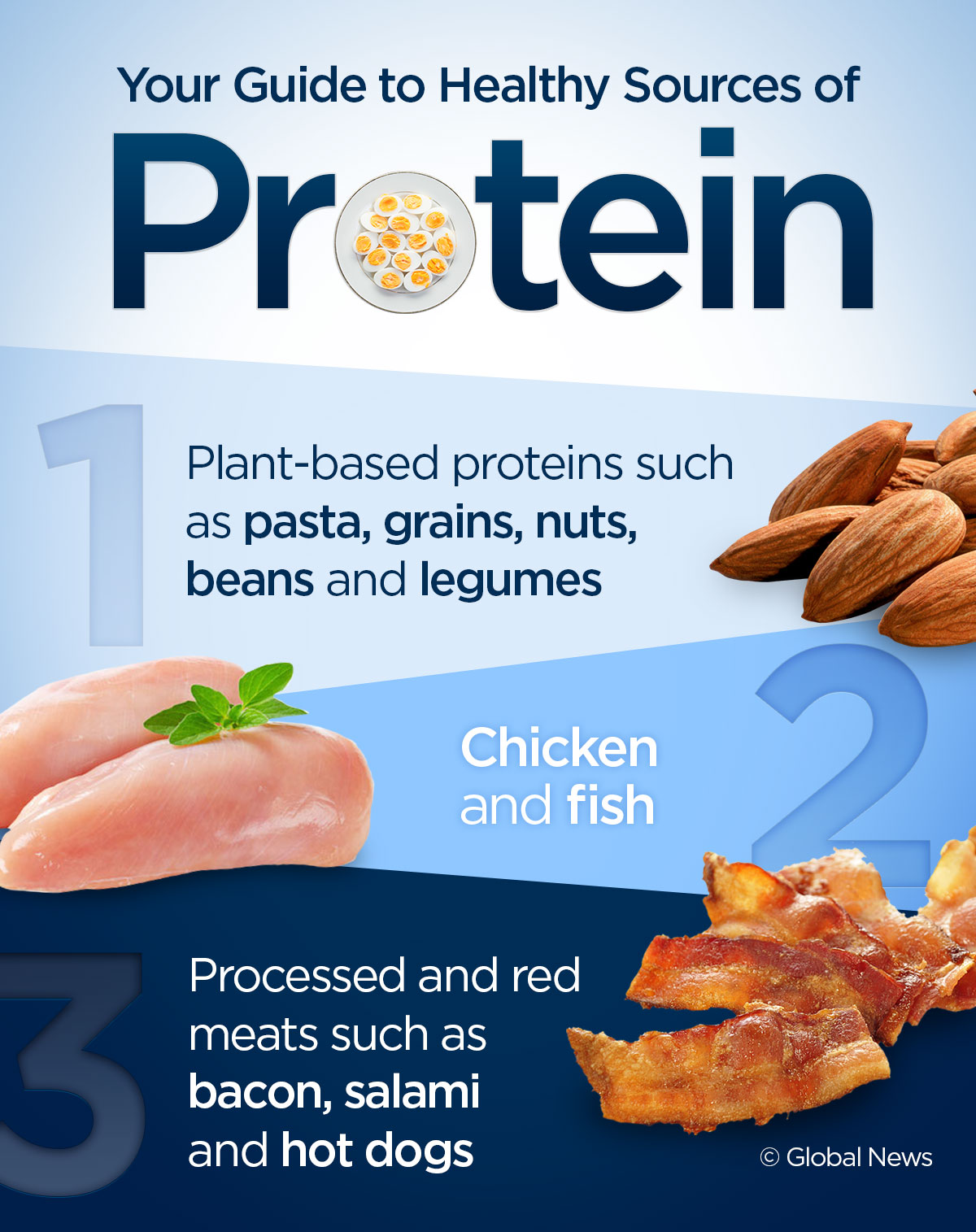Do you get your protein from beans and nuts, chicken and fish, or from steak and hot dogs? New research suggests that eating protein from plant sources is better for your health. Loading up on red and processed meat, on the other hand, leaves your health worse off.

When you’re building your meal, swap out steak for chickpeas and whole grains for a healthier diet, doctors out of Harvard Medical School say.
“Our findings suggest that people should consider eating more plant proteins than animal proteins, and when they do choose among sources of animal protein, fish and chicken are probably better choices…,” lead researcher, Dr. Mingyang Song, said.
“When we looked deeper into the data, we found that — at similar levels of animal protein intake — those in the unhealthy lifestyle group consumed more red meats, eggs and high-fat dairy while the healthy lifestyle group consumed more fish and poultry,” he explained.
READ MORE: This food will make you feel fuller if you’re trying to lose weight
Song’s team says their research is the largest study to date to examine the effects of different sources of protein.
Protein comes with plenty of benefits: it helps with weight management, reduces blood pressure and keeps you feeling full.
While past studies zeroed in on how much protein we should be eating, there hasn’t been as much research considering how our sources of protein tamper with our health.
Song came to his conclusions after looking at data from two large, long-term studies that are still being carried out: the Nurses’ Health Study (NHS) and the Health Professionals Follow-Up Study (HPFS). Between the two studies, researchers have access to the health data of more than 170,000 people whose health has been monitored since the 1980s.
READ MORE: Follow this one tip if you’re trying to lose weight, study suggests
Study participants fill out health questionnaires every two years, including what they’re eating, how much, and how often.
With 32 years of data in tow, Song and his team caught onto some patterns:
- Even after adjusting for major lifestyle and dietary risk factors, every 10 per cent increase of animal protein was tied to a two per cent higher risk of death from all causes and an eight per cent increased risk of dying from heart disease
- On the other end of the spectrum, eating more plant protein was tied to a 10 per cent lower risk of dying from all causes
- The risk of dying was heightened if study participants were obese or drank alcohol “heavily”
- Swapping out three per cent of calories from animal protein with plant protein was tied to a lower risk of dying across the board: 34 per cent for substituting processed red meat, 12 per cent for trading in unprocessed red meat, and 19 per cent for switching out eggs
This isn’t the first study to warn about the risks of red meat. In 2012, for example, Harvard’s School of Public Health suggested that red meat was tied to an increased risk of heart disease and even cancer.
READ MORE: 9 diet and weight loss mistakes you’re making
In that case, they said a single daily serving of unprocessed red meat — about the size of a deck of cards — was associated with a 13 per cent increased risk of death, while one daily serving of processed meat was linked to a 20 per cent increased risk.
A serving could be a few ounces of hamburger, some pepperoni slices on a pizza, or some sausage links.
The concern in processed meat is ingredients, such as saturated fat, sodium, nitrites and certain carcinogens that are formed during cooking.
READ MORE: This tactic will help you cut calories from each meal
Sources of plant protein include pasta, soy, nuts, beans, legumes and grains.
Song’s full findings were published in JAMA Internal Medicine.
(Janet Cordahi/Global News)
carmen.chai@globalnews.ca
Follow @Carmen_Chai


Comments